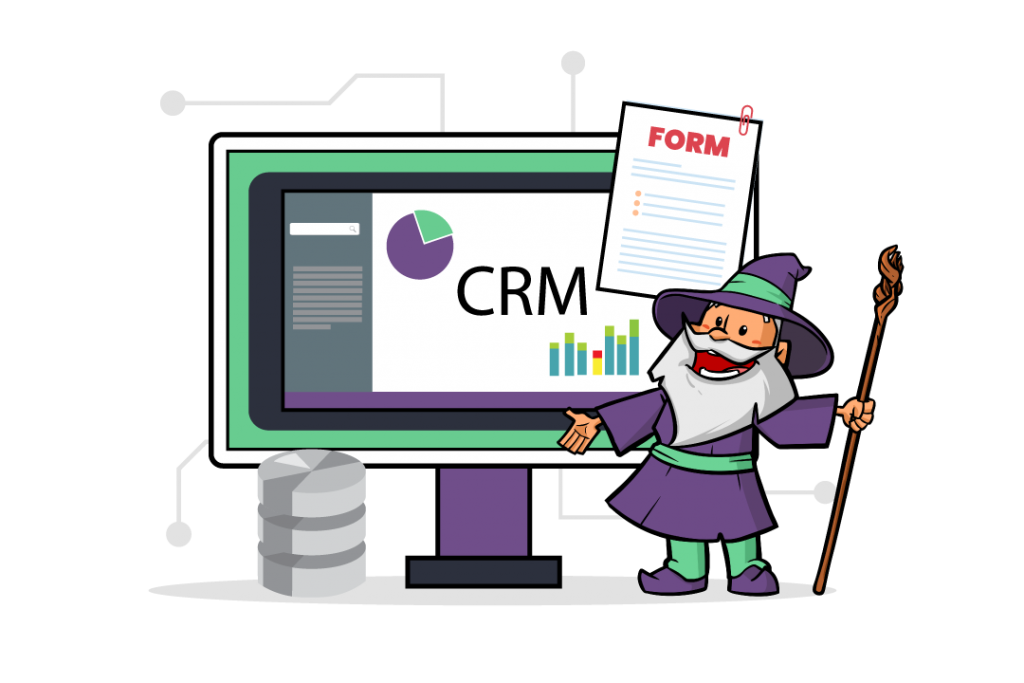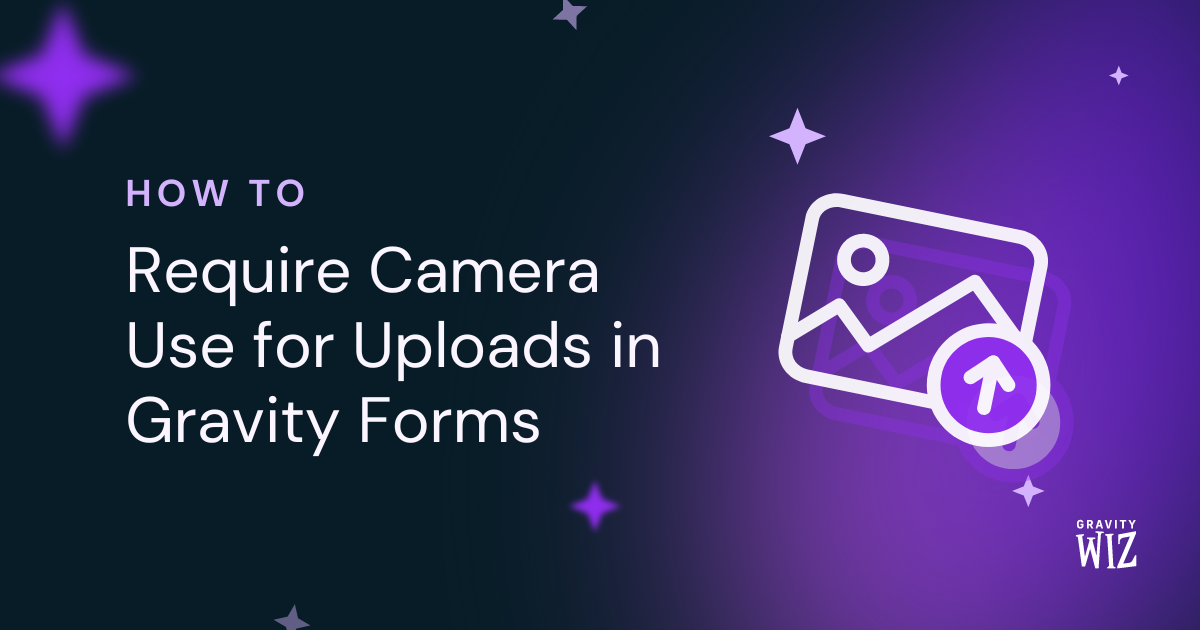How to do more with Gravity Forms CRM Integration
How to connect Gravity Forms to your CRM and collect all the info you actually need, using various Perks

Customer relationship management (CRM) software is essential for managing relationships with customers. More specifically, it’s a centralized place to gather everything your business needs to know about its customers. Some popular CRMs include Zoho CRM, Microsoft Dynamics CRM, and Agile CRM. A Gravity Forms CRM integration can help you keep track of questions like:
- Who are your customers?
- How does your business connect with them?
- How do they interact with your business?
- How does your business reach more customers?
Many companies start out with a simple spreadsheet to store all of this information. However, the “flat” structure becomes difficult to manage when the company grows and has to deal with a larger number of form entries.
Integrating your CRM with WordPress means that you can capture information from new visitors as they interact with your website. This is possible using a CRM plugin, Gravity Forms add-on, or API.
If you need to collect information from visitors so that you can update contacts in your CRM and follow up with them, then you’ll need some sort of a form builder. Gravity Forms is the perfect WordPress plugin for anyone who wants to collect information from their site’s visitors or customers and store it in their CRM as a new contact. It’s incredibly easy to use, offers effortless WordPress integration, and is massively extensible. This makes it perfect for small business owners, event managers, agencies, and service providers.
In this article, we’ll show you how to connect Gravity Forms to your CRM and start collecting all of the information you need using various Gravity Perks.
Gravity Forms CRM Integration
You can use the Gravity Forms plugin to collect all kinds of data from visitors and potential consumers, from contact details to test scores and color preferences. By default, however, all this data would be stored on your WordPress site’s back-end or in a spreadsheet. By connecting Gravity Forms with your CRM, you can instead map Gravity Forms entries to CRM contacts and update them automatically.
The type of data you’ll need to collect will vary depending on the type of business you’re running. This will also help you decide which CRM is best for you.
While vanilla Gravity Forms is perfect for collecting basic information from visitors, it has a few limitations when it comes down to integrating with a CRM. For advanced functionality, you’ll need Gravity Perks.
5 Ways to Enhance Your Business With Gravity Forms CRM Integration
Here, we’ll step through some of the different ways businesses can benefit from a Gravity Forms CRM integration and explain how to set it up using Gravity Perks.
#1 – Collecting feedback data
Let’s say you run a business that sells a variety of different product models that were available at different times and want to collect feedback data from customers in your CRM. To make it easier for customers to provide feedback, you’ll need a way to show only the products that were available when the user first became a customer or bought their product. That way, your existing customers won’t get confused when you add new products to your range that don’t apply to them.
GF Conditional Logic Dates
The easiest way to do this is by using GF Conditional Logic Dates. GF Conditional Logic Dates lets you use Date and Time fields in your Gravity Forms conditional logic. This way, you can display the products that were available in the period the user made their purchase. To take things to the next level, you can use GF Limit Dates to only allow users to pick a date in a certain range.
#2 – Keeping Control of Data
If you run a large business, you probably understand how important it is to get accurate data from webforms when conducting surveys or collecting customer information. Incorrect data can undermine entire surveys whether it’s entered maliciously or accidentally.
The GF Limit Submissions perk allows you to set a limit on the number of times a form can be submitted from an IP address within a certain timeframe. This prevents rogue repeat form submissions and ensures that all the data in your CRM is accurate. This can be particularly helpful for those CRMs that put a limit on, or charge per number of, contacts, as it prevents duplicate contact data from inadvertently clogging up your CRM.
GF Limit Submissions can also help if you have a form with a file upload field, preventing users from accidentally uploading the same file multiple times and overloading your server with redundant files.
#3 – Determine customer loyalty
As a growing business, it’s important to keep track of your customers – particularly those that have been with you from the start.
The GF Date Time Calculator perk can help you calculate the time between dates to see how long a customer has been using a certain product or service when you use Gravity Forms to create or update CRM contacts. You can also use it to determine other factors such as the customer’s age or how long they’ve been a lead and paying customer.
#4 – Populating fields dynamically
Using the GF Populate Anything perk, you can dynamically populate field choices based on previous user responses. This is particularly useful if you want to store additional information for each customer in your CRM.
GF Populate Anything
This can help you deal with user categorization. For example, if a customer selects a specific ‘Model Type’, you can dynamically populate the ‘Available Color’ custom field with the options that are available for that model type. You’ll then be able to update your CRM with exactly, and only, the right data your need.
#5 – Dynamically organize the database
You can use GF Unique ID to dynamically organize the generated database for your CRM contacts. This perk automatically generates alphanumeric, numeric, or sequential values for each entry when a contact form is submitted. This is particularly useful for businesses that need a simple yet effective way to keep their customer database organized.
Bonus: more ways to use Gravity Perks to enhance your Gravity Forms CRM integration
Here are some additional ways you can use Gravity Perks with your Gravity Forms CRM integration:
- Send notifications to customers. The GF Email Users perk lets you send notifications to customers who submitted a specific form on your WordPress website.
- Populate customer information based on previous submissions. You can use GF Easy Passthrough to dynamically populate customer information based on their previous form submissions. It’s a simple and easy way to speed up subsequent form submissions by auto-populating common fields like the customer’s name, email address, phone number, and billing address.
- Managing team registrations. If you organize events, you might need an easy way to accept group registrations and store the data in your CRM. The GF Nested Form perk is perfect for handling group registrations.
- Display CRM account information. The GF Ready Only perk lets you configure form fields to be set to a read-only state. In other words, they’ll be visible but not editable. You can use this to display information without giving the user the option to modify it.
If you need to send existing Gravity Forms entries to your CRM (or any other feed-based integration), Gravity Forms Feed Forge is a free plugin that allows you to process all feeds (i.e. existing entries) with one click.
Conclusion
A Gravity Forms CRM integration is perfect for growth-minded businesses that are looking for a simple way to collect and store information about their customers and new leads.
We shared some of the different ways you can use Gravity Perks for automation to better collect and store information in your CRM system. Hopefully, you’re in a good position now to take the next steps.
Get Gravity Perks to enhance your Gravity Forms CRM integration today!





Hey Guys, I’m not sure why you GUYs are HIDING from your potential customers? You don’t have a CONTACT FORM? WHAT not even a Gravity Form CONTACT form? Who are you guys? Are you like under staffed not even a secretary? Should I even consider buying ANYTHING from you? I was refused to make a purchase with my DEBIT CARD! You probably outsource your shopping cart to some FOOL in INDIA! Here’s the stupid message I got from your shopping cart.
Dec 28, 2021 $59.00 Prepaid cards are not a valid payment method. Please try again with a new payment method.
This is how you lose customers and piss them off. Time to WAKE UP
Hi JP,
Sorry about the issues you’re experiencing. We do have a contact form, but it’s only available to registered customers. For potential customers, you can use our Pre-sales form to get in touch here. Looking forward to your ticket so we can assist you.
Best,